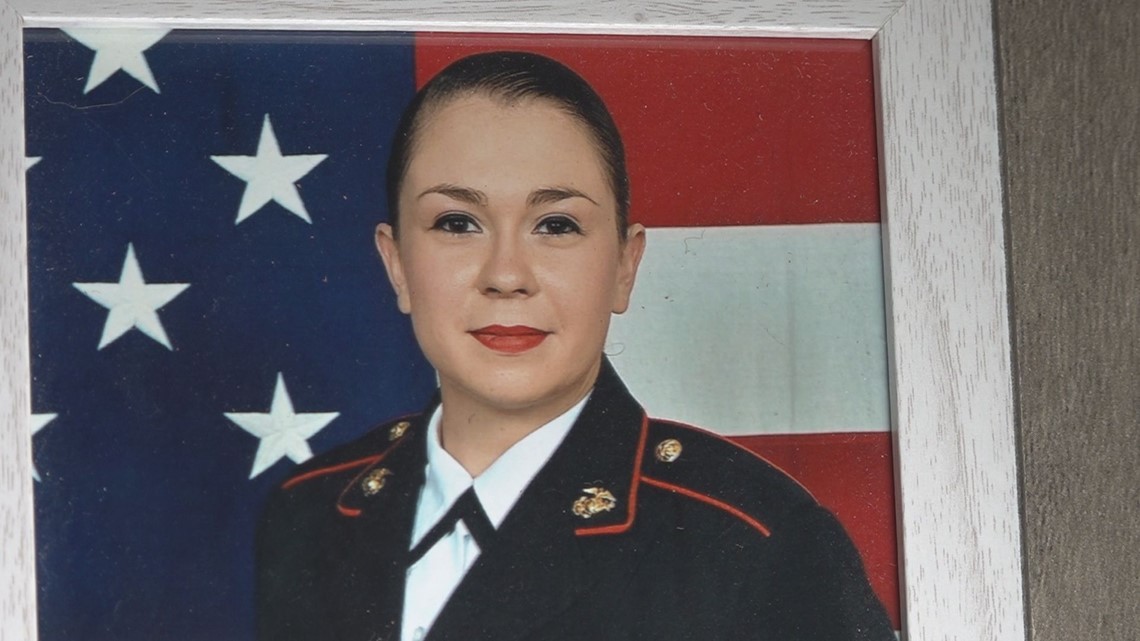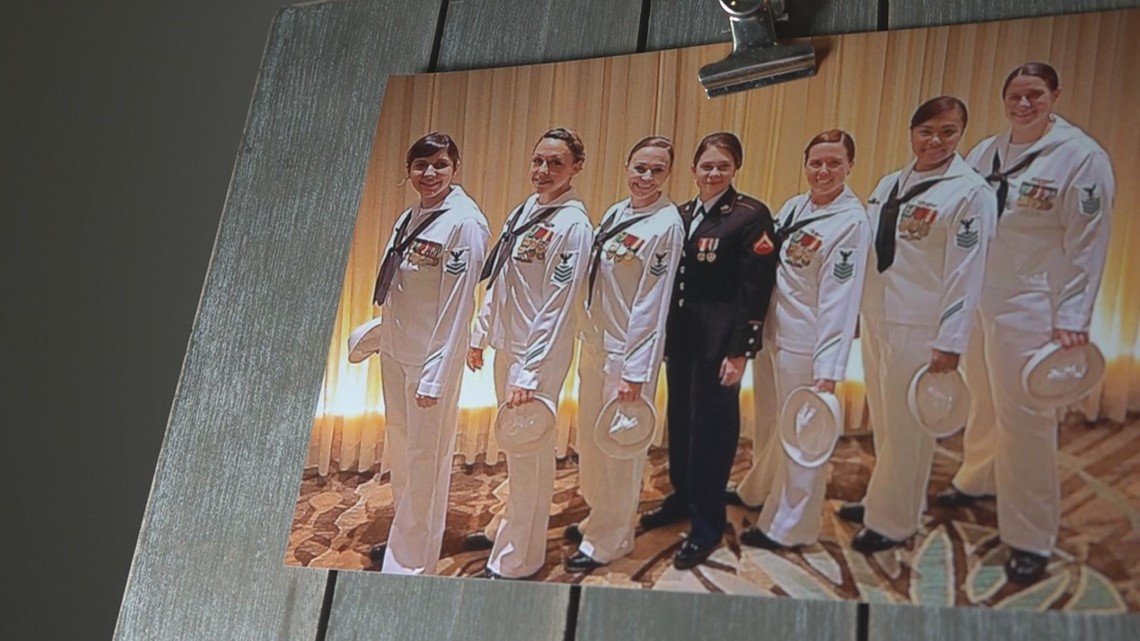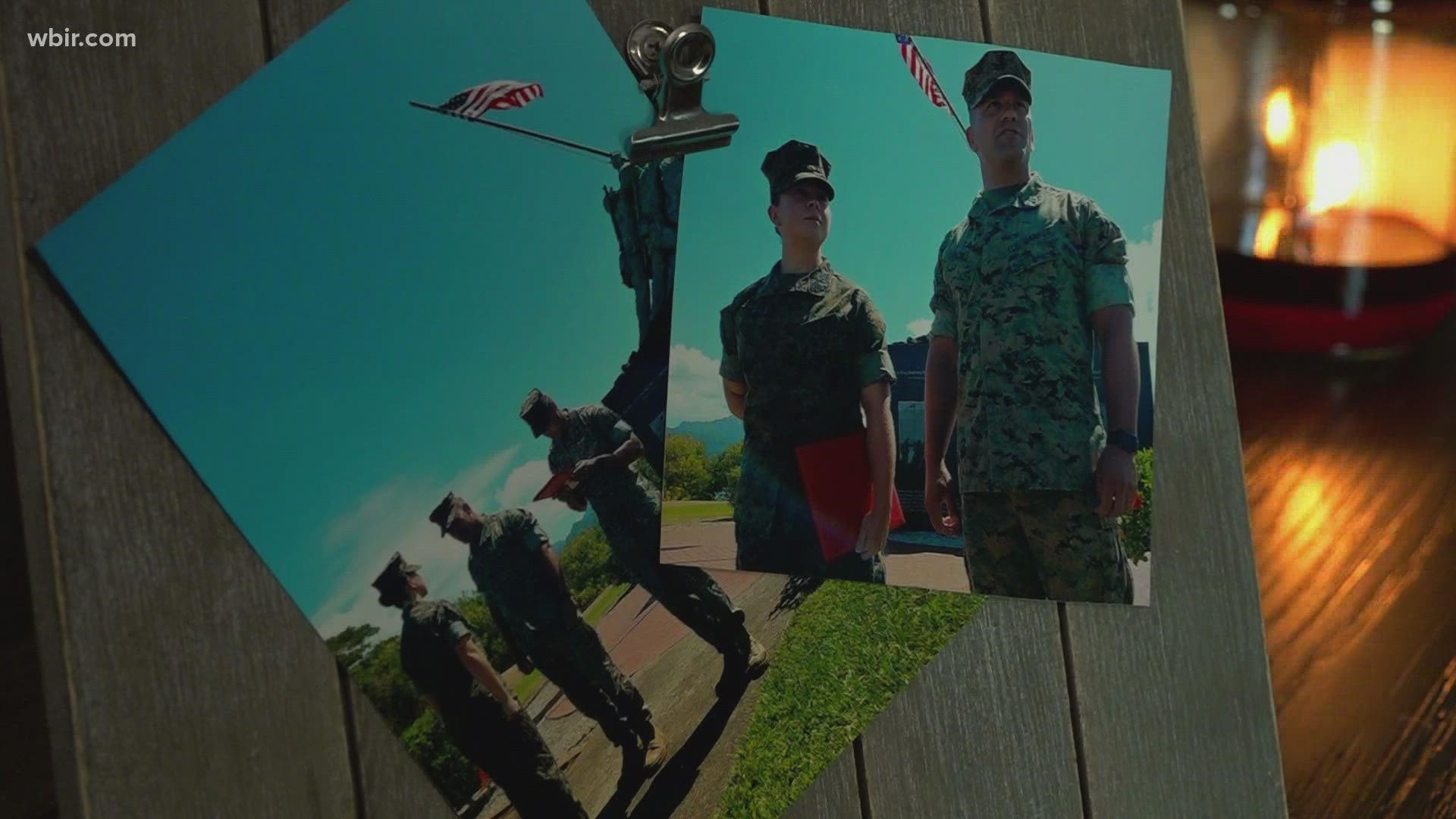KNOXVILLE, Tenn. — Women make up around a fifth of the U.S. military. In some branches, it's much less.
According to the Military Leadership Diversity Commission, the percentage of females in each branch are as follows:
- The United States Air Force: 20% female
- The United States Army: 13.5 % female
- The United States Coast Guard: 12.4% female
- The United States Navy: 15.9% female
- The United States Marine Corps: 6.3% female
The USMC has the smallest amount of females compared to all of the U.S. military branches. Megan Byrd, a student veteran at the University of Tennessee, was one of those women.
She enlisted after high school. She said the Marine Corps felt like the right fit.
"The military wasn't that much of a drastic change from the order of life that I was following," Byrd said. "So, when I went into the military, it wasn't that hard for me to adapt to the lifestyle of the military."
Byrd served for around 5 years. She said her favorite memory was being promoted to Meritorious Sergeant, a big honor to Marines. It is a recognition of exceptional qualification, outstanding performance and ability to assume positions of greater authority and responsibility.
"When I found out that I had gotten Meritorious Sergeant, it was the biggest thing because I've worked so hard for it as soon as I got to my duty station," Byrd said.
She worked extremely hard. Byrd didn't know it before enlisting, but there are unexpected challenges that come with being a woman in the military.
"It's very different, especially because the percentage of females is a lot lower than the male ratio," Byrd said. "Sometimes you do have to deal with things like sexism."
Byrd said she tried not to let it affect her and her goals.
"I have a very black and white personality, where I brush a lot of things off because I'm just going toward my goal," she said. "I just want to keep on moving."


But that wasn't the only struggle. Byrd also struggled to stay within the weight restrictions.
"I was skipping meals, I wouldn't eat sometimes, I was constantly working out and constantly afraid of not making weight. It was its own debacle, and a lot of females struggle with that," Byrd said.
However, something Byrd did like was the smaller pool of competition. She felt motivated to push herself and prove herself as a strong female leader.
"It was a challenge because you had to prove yourself. There's a smaller pool of females. And, sometimes you're the only female in the unit," Byrd said.
When Byrd left the Marine Corps, she enrolled in college. Unlike many others, her adjustment to civilian life was seamless. It's something she attributes to her "Type-A" personality, where she wants to get involved both socially and academically.
Byrd enrolled at the University of Tennessee and got plugged in with the Veteran Success Center. The Center's goal is to create an environment where student veterans can thrive in areas of academia, leadership, and connectedness.
Byrd wanted to help other veteran women.
"I think a lot of women face the degradation of society and the degradation of the views that are put on them," Byrd said.
Byrd works at the Veterans Center where she helps veterans learn about benefits and mentors those who are just starting their higher education journies. She is president of the Student Veterans Association at UTK and part of SALUTE, the university's veterans honors group.
Byrd also works with the local Infinite Warrior Foundation, an organization that raises awareness of veteran suicide as well as fundraises to help the families of veterans who have committed suicide with funeral costs and other support.


Byrd's goal is to make sure other women feel supported in their transition.
"If they have another woman who's bringing them up saying like, 'Hey, you got this, you're doing great. You're doing amazing. Keep it up. We're both gonna work this together. And we're both gonna stand on this very high mountain top together.' I think that's the biggest thing," Byrd said.

